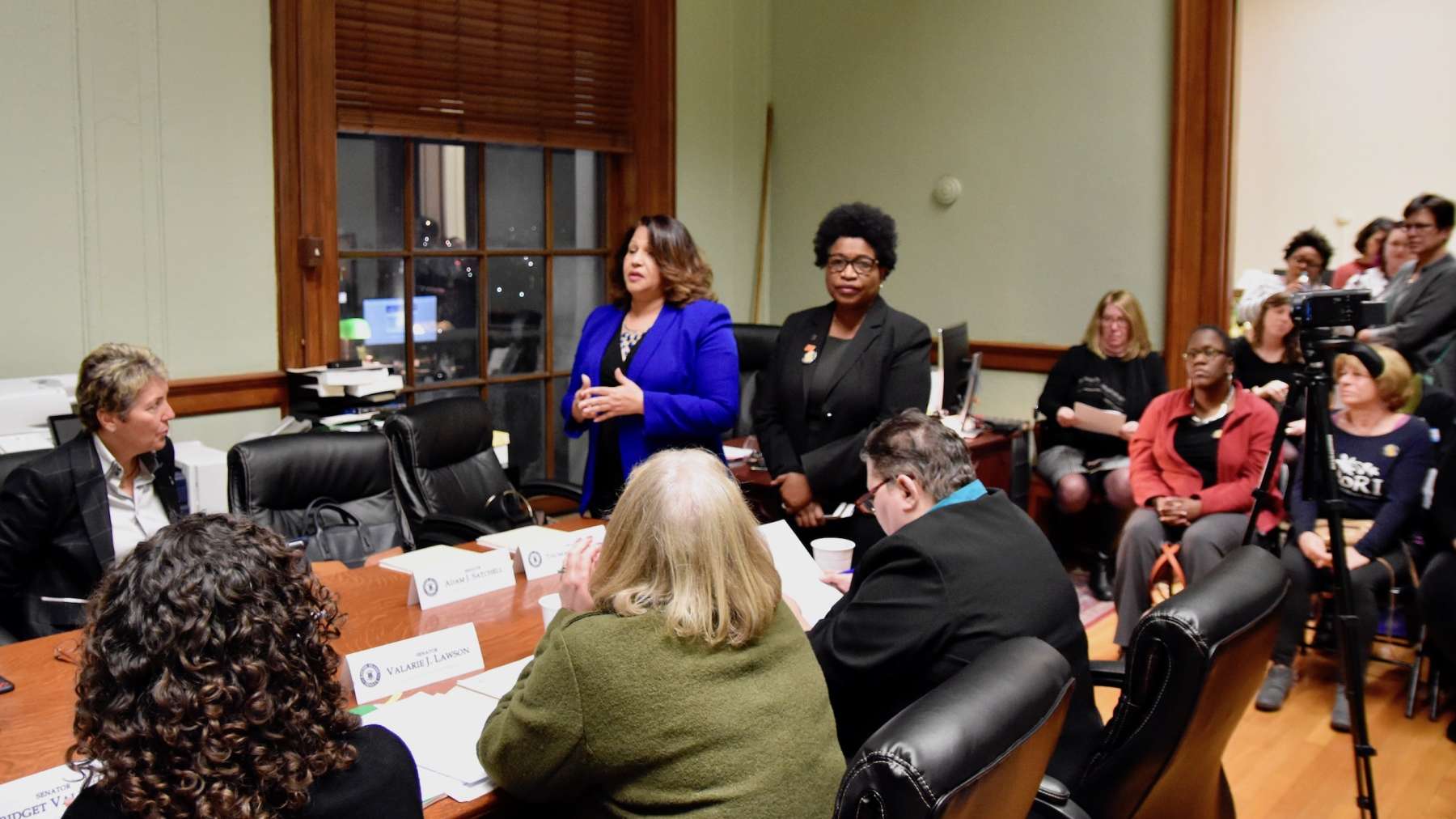Senate Bill aims to decrease Rhode Island’s Black maternal mortality crisis
“The doula bill must be passed, and reimbursement has to come from both Medicaid and private insurance.” At a time when our country is reexamining its racist history, we must realize that structural racism pervades the system of healthcare as well. The same system that allows police brutality to steal Black lives is failing Black mothers. And the price of
September 11, 2020, 9:00 am
By Charissa Chou
“The doula bill must be passed, and reimbursement has to come from both Medicaid and private insurance.”
At a time when our country is reexamining its racist history, we must realize that structural racism pervades the system of healthcare as well. The same system that allows police brutality to steal Black lives is failing Black mothers. And the price of failure is death. In the United States, Black women are three to four times more likely to die in childbirth than white women, regardless of socioeconomic status. Black maternal mortality continues to be a significant problem in Rhode Island. According to a 2019 Mortality report from the CDC, in Rhode Island, there were 63.8 pregnancy-related deaths (PRDs) per 100,000 live births of Black women compared to 26.1 PRDs of white women. The rate of infant mortality for Black babies in Rhode Island was 9.4 per thousand live births – almost double the rate of infant mortality for white babies. Pregnancy outcomes are not just limited to survival. Prematurity is an important outcome to consider because it has far-reaching implications for the baby and puts the mother at higher risk for postnatal health problems. Babies born prematurely are more likely to develop chronic health issues than non-premature babies and can have long-term intellectual and developmental disabilities. In Rhode Island, the preterm birth rate among Black women is 39% higher than the rate for all women. The science behind this inequity is still under debate. Risk factors for premature labor include medical risk factors such as high blood pressure, diabetes, and having a family history of premature birth, and environmental risk factors such as low socioeconomic status, increased levels of stress, and exposure to air pollution, lead, and chemicals. Structural racism has resulted in Black people being much more likely to live in conditions that contribute to these medical and environmental risk factors. Importantly, the accumulation of oxidative stress from living with consistent racist encounters is thought to contribute to the higher rates of preterm labor in Black women.
So what can we do to address how racism in our healthcare system is contributing to poor pregnancy outcomes for Black women and babies? As people protest on the streets against police brutality, they are fighting for their unalienable right to life as it is stated in the Declaration of Independence. I would argue that the right to fair health care, given at the same standard to people regardless of their race, is under the right to life. To make equitable health care the standard of care for everyone, we need change at the legislative level.
One intervention that has shown to reduce poor pregnancy outcomes for women of color is having a doula. A doula is a trained professional who provides emotional, physical, and informational support during pregnancy and childbirth. However, the cost of a doula is not currently reimbursable by insurance. At the legislative level, a bill that would reimburse doulas and create a statewide registry of doulas to help connect women with a professional is being voted on in the financial committee. Sponsored by Representative Marcia Ranglin-Vassell (Democrat, District 5, Providence) and Rhode Island Senator Ana Quezada, this bill rides on the heels of evidence that women receiving doula support have a 22% reduction in the odds of a preterm birth.
Erin Corry, a doula, mother of two, and founder of the Ezer Birth Collective, believes that doulas help prevent premature labor by filling in education gaps and providing emotional support. Doulas support clients throughout the entire prenatal experience, during the birth, and throughout the postpartum experience. Doulas act like tour guides to the system, helping clients understand what is happening throughout the numerous appointments with different doctors and reminding them what their options are. Especially for Black women, the majority white-staffed obstetrics wards have power dynamics to be navigated, and doulas can help interface with both parties to ensure the patient is being advocated for.
Seeing the differences in care for white mothers and Black mothers was a galvanizing experience for Shaylene Costa, a Black doula, medical assistant, and mother. “I supported her [a white mom], and when I came home and replayed her experience giving birth and comparing it to my experience as a Black mom giving birth, it was really, really hard for me to face the differences,” Shaylene recalled. “It wasn’t exactly an awakening, but to have the physical proof was emotionally hard.” In addition to the microaggressions, where the white mother was asked for permission to touch her or move her, Shaylene was not asked for consent for those same procedures. That is why she strongly believes in the necessity of having someone ensure the mother is advocating for herself. “The doula bill must be passed,” she affirms, “and reimbursement has to come from both Medicaid and private insurance.” Because poor pregnancy outcomes disproportionately affect Black women of all socioeconomic statuses, it is important that private insurance plans also reimburse doula services. Healthcare providers, doulas, and women in the community must rally behind this bill because of its potential to significantly improve health outcomes, especially for women of color.
As we fight to take down structural racism, the realm of health care must not be left untouched. By working at every level, from individual providers to hospital systems to the legislation, we fight for the right to life of all members of society, from Black women to their unborn babies.






